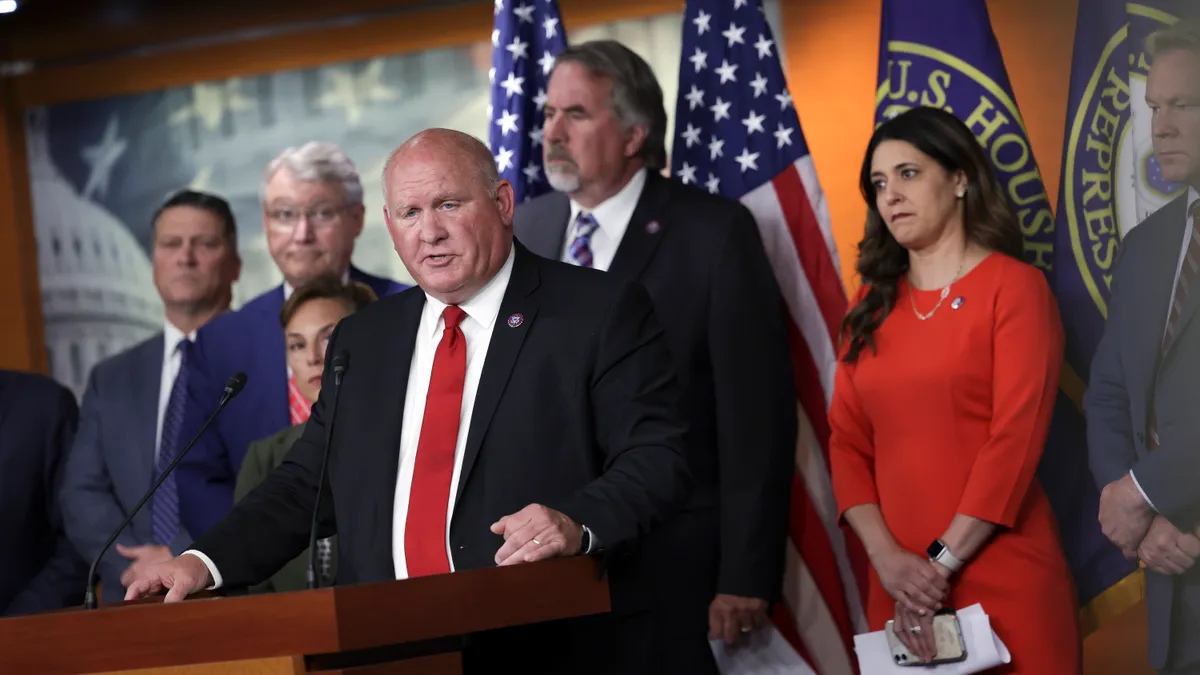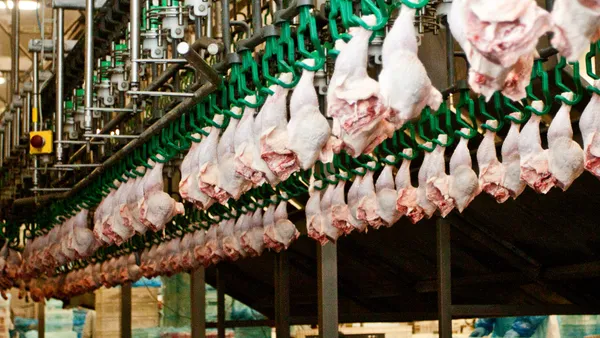House Republicans on Wednesday released a high-level outline of their proposals for the farm bill, which includes expanded funding for trade promotion and takes aim at California's controversial animal housing law Proposition 12.
The plan notably addresses major concerns from Democrats by keeping an additional $20 billion in climate funding allocated under the Inflation Reduction Act within the conservation title. It also leaves food assistance benefits intact, though seeks to limit the executive branch from "arbitrarily increasing or decimating" the Supplemental Nutrition Assistance Program.
The House Agriculture Committee will consider the plan May 23, Chairman Glenn "GT" Thompson said in a statement.
"I hope for unanimous support in this endeavor to bring stability to producers, protect our nation’s food security, and revitalize rural America," said Thompson, a Republican from Pennsylvania.
Senate Democrats are expected to release their framework as early as this week, Politico reported. Agriculture Chair Debbie Stabenow has pushed for changes to the crop insurance program, setting up the potential for a partisan stalemate.
Farm bill consideration has been held up for more than a year amid a tight funding environment, with Democrats fiercely pushing back against Republican calls to reallocate climate or food assistance funding toward other farm programs.
Despite funding constraints, House Republicans' plan "significantly increases" money for trade promotion programs, something farm groups have pushed for as China slows U.S. commodity purchases. The source for the additional funding will "shake out based on pending information" from the Congressional Budget Office, Thompson's office told Agriculture Dive.
The framework additionally enhances credit financing options for producers and expands premium crop insurance assistance for beginning and veteran farmers. It also looks to counteract some of the national impacts of California's Prop 12 by stating that state and local governments can only impose animal production standards on livestock physically located within their territory.











